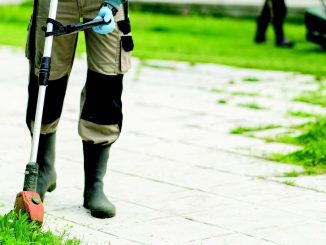
[Written by The Emergency Services Team at St. Peter’s Health Partners.]
The hustle and bustle of the holidays is in full swing and there’s no reprieve in the kitchen! It tends to go like this: you’re in a hurry to prepare food and grab the first knife you find in the cluttered drawer to cut the ham, or vegetables for the salad.
SLOW DOWN. Rushing and being distracted while using sharp kitchen utensils are common causes of preventable injuries. Another mistake is using a knife of an inappropriate size/style for the job. For example, you wouldn’t use a large-blade knife to cut through a small vegetable and you wouldn’t use a dull butter knife to cut a steak.
Here are some other blade safety tips to that could save your fingertips.
- Don’t hold items you are cutting; place them on a cutting board and make sure the cutting board is secure.
- Don’t leave the knife on the edge of a counter where you could hit it; it could fall and injure a foot.
- Keep your knives sharp so the cutting is not forceful.
- Always cut AWAY from your body and make sure fingertips are not in the way.
- Don’t leave sharp knives in a sink full of water to blindly grab.
- Don’t use a knife in a crowded kitchen. One bump to your elbow could be a disaster.
- Consider wearing cut-resistant gloves, especially if you are using a shredder or mandolin. Pay extra close attention when using these sharp kitchen tools that come very close to your fingertips.
Regardless of how you got the wound, what do you do now?
If you sustain a knife wound in the kitchen, apply a clean rag/towel with pressure to the site and hold it for several minutes to stop the bleeding.
If the wound is very deep, bleeding excessively, is potentially disfiguring, exposes deep layers of skin, fat, or bone, or if you lose feeling in or have trouble moving a digit, call 9-1-1 or get to your nearest emergency room. Keep pressure on the wound.
If you get the bleeding under control and the wound is not too serious, but still needs medical attention, go to your local urgent care location. They are equipped to stitch mild-to-moderate wounds, prescribe antibiotics, and give tetanus shots and follow-up care.
If it’s a minor wound, but you are concerned about infection or need a tetanus shot, contact your primary care physician (PCP) at your soonest convenience or visit your local urgent care if you can’t get in with your PCP right away.
We hope these tips help you sharpen your safety skills when it comes to preparing your meals. Best wishes for a safe holiday season to all!
When emergency care is needed, St. Peter’s Health Partners offers access to top-quality emergency departments and urgent care centers all across the Capital Region. For more information, visit us at sphp.com/for-patients/think-before-you-go.





